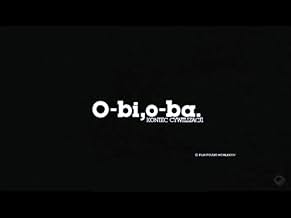O-bi O-ba, through the dystopian Illustrating of a micro-society set in an underground dungeon after a nuclear holocaust, is surprisingly perfect. The story follows a wandering hero through different landscapes that dominate each of the levels of the refuge.
It was released in 1985, the same year as another, quite similar film: Terry Gilliam's Brazil. Perhaps something was in the air over all of Europe at the time, something moving freely and without heed of the iron curtain, something grotesque enough to bend men's minds to craft images like this one:
With a budget that we can easily guess very limited, produced in a country of the communist bloc only a few years before the collapse of the USSR, the Polish director Piotr Szulkin has succeeded beyond all these constraints to create a minimalist yet coherent and very immersive science-fiction universe. The film offers a dark and hopeless atmosphere, in an oppressive environment, here people cling on a belief, of a prophecy - the Ark. Its a metaphorical bomb all around with many possible interpretations.
Alongside Soft, the protagonist, we are gradually discovering the different layers constituting the lie, this mirage which maintains order in this society. Under these conditions, a handful of men is enough to keep the control mechanisms operational, and work to ensure that they remain so once the Dome is shattered, one step ahead of its inhabitants, obsessed with their survival and their salvation. The Dome and the Ark, the Soviet grip and the mirage of the West, is only one among many interpretations that can be found inO-bi, O-ba, political, religious or emotional. There remains a particularly desperate look on the enslaving power of belief, on the predisposition of some to embrace it and on the will of others to exploit it.




































